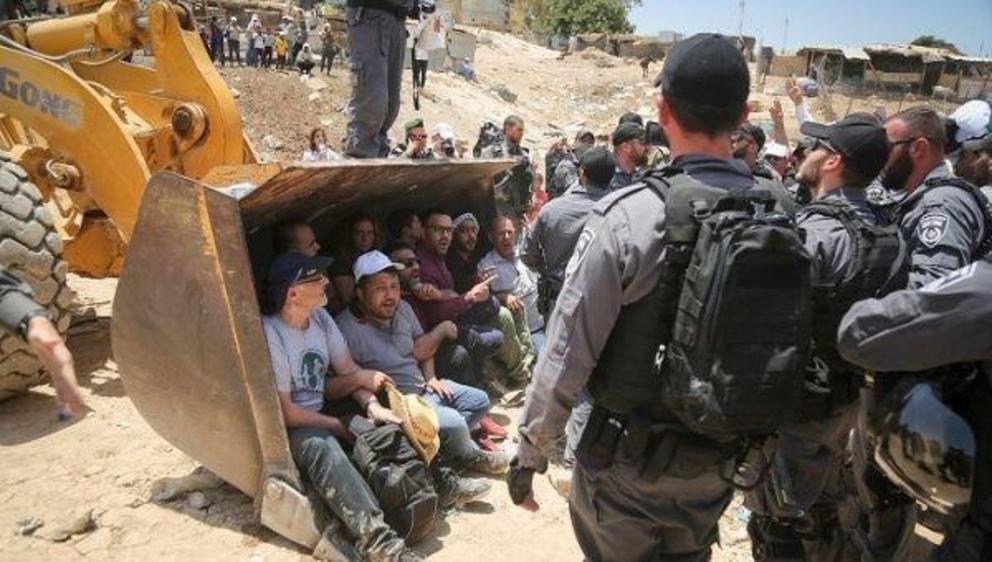Israel: court orders freeze on demolition of Khan al-Ahmar
The temporary freeze comes after increasing pressure by the international community and an appeal filed by the bedouin village's lawyer.
An Israeli Supreme Court ordered Thursday a temporary freeze on the illegal demolition of Palestinian Bedouin Village Khan al-Ahmar, in the occupied West Bank. The injunction came after lawyer Alaa Mahajna filed an urgent petition on behalf of the village and its 181 residents.
The petition argued that Israel’s Civil Administration, which oversees construction permits in most of the occupied West Bank, refused to review a plan submitted by the town to legalize it. The state now has until July 11 to respond to this claim and challenge the injunction, after which the court will decide whether to continue deliberations on the case or allow the demolition of Khan al-Ahmar, home to a school that serves around 170 children living in nearby Bedouin communities.
Khan al-Ahmar’s case has gained international attention and solidarity.
On Thursday, the United Nations warned that displacing Palestinian villagers has "serious human rights and humanitarian law consequences."
Scott Anderson, the director of operations in the West Bank for the United Nations agency for Palestinian refugees, rejected the demolition saying "these pastoral communities are mostly Palestinian refugees, originally displaced from their tribal lands in the Negev. They should not be forced to experience a second displacement against their will."
The people of Khan al-Ahmar, which are mostly members of the Jahalin Tribe, were expelled from the Negev in the 1950s and relocated to an area within Palestinian borders that came under Israeli military control after 1967.
Today, the village lies between two illegal Israeli settlements Ma’ale Adumim and Kfar Adumim. According to the villagers and Israeli anti-occupation groups, the demolition seeks to create territorial continuity between these two settlements and connect it with the occupied city of Jerusalem.
On Thursday diplomats from France, Sweden, Belgium, Italy, Ireland, Switzerland, Finland, Spain and the European Union tried to visit the area, but Israeli police blocked their entry.
Later the EU published a statement saying they "expect the Israeli authorities to reverse these decisions and fully meet its obligations as an occupying power under International Humanitarian Law."
Save the Children country director Jennifer Moorehead warned against excessive optimism explaining that the injunction only represents a postponement of the demolition and highlighted the psychological impact on the community. “This community has already suffered so much, and the impending threat of demolition is having a huge impact on the psychological well-being of the children," she said in a statement Friday.

